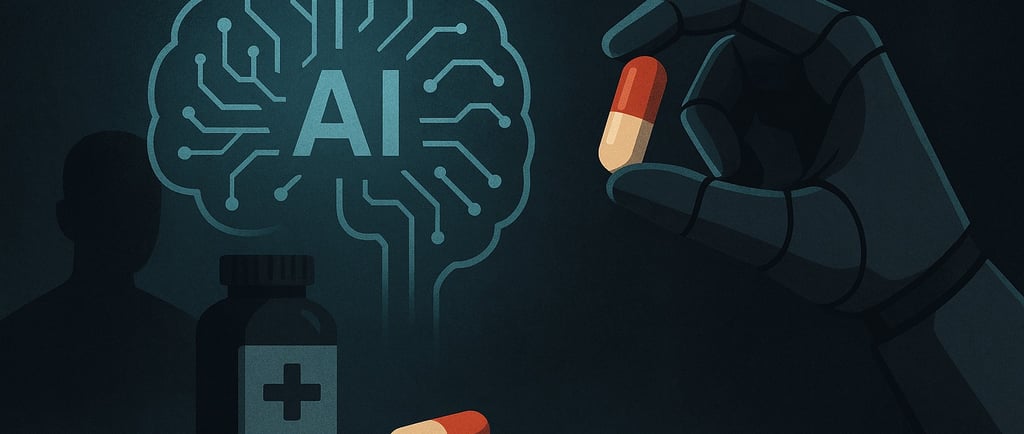AI Enhancements in Medication Safety
AI technology is being explored to enhance medication safety in operating rooms, particularly to prevent medication errors caused by vial swaps. A new AI-powered wearable camera has shown remarkable accuracy in detecting these errors, potentially saving lives. However, the integration of such technology must be approached with caution, considering privacy and ethical implications.
FUTUREUSAGETOOLS
AI Shield Stack
10/27/20252 min read


In the high-pressure environment of an operating room, mistakes can happen swiftly and with devastating consequences. John Wiederspan, a nurse anesthetist at UW Medicine, emphasizes that during emergencies, the rush to administer medication can lead to errors, particularly in medication dosing. Astonishingly, it is estimated that 1 in 20 patients experience medical mistakes in healthcare settings, with medication errors injuring approximately 1.3 million people annually in the U.S. alone, according to the World Health Organization.
Despite hospitals implementing various safety measures, such as color-coding drugs and using barcode scanners, the problem persists. Dr. Kelly Michaelsen, an assistant professor at UW Medicine, recognized that the integration of artificial intelligence could be a game-changer in preventing these errors. With her engineering background, she proposed the idea of using AI to serve as a second set of eyes for anesthesiologists, particularly to detect vial swap errors which account for around 20% of medication mistakes.
Michaelsen and her team developed an AI-powered wearable camera that scans and verifies the labels on syringes and vials. This innovative device alerts medical staff in real-time if a mismatch is detected, potentially averting tragic outcomes. After years of development and data training, the device achieved an impressive accuracy rate of 99.6% in detecting vial swap errors, though it awaits FDA clearance for real-world application.
As the technology evolves, Michaelsen envisions expanding its capabilities to include monitoring drug volumes in syringes, particularly critical in pediatric cases where dosing can vary significantly based on patient size. The feedback from medical professionals who have tested the device has been optimistic, with many believing that such tools can enhance patient safety by reducing cognitive burdens during chaotic moments in the operating room.
However, the introduction of AI in healthcare is not without its challenges. Concerns about data privacy, reliance on technology over human vigilance, and the potential for invasive monitoring practices loom large. Experts like Dr. Nicholas Cordella caution that while AI can facilitate passive monitoring, it should not replace traditional safety practices. It is crucial to establish clear guidelines and maintain transparency with patients and healthcare providers regarding the use of such technologies.
Overall, the integration of AI into clinical practice holds significant promise for improving medication safety. As AI solutions become more prevalent, ensuring rigorous oversight and ethical standards will be essential to harnessing their full potential in enhancing patient care.
AI Shield Stack can help healthcare organizations implement robust AI solutions while ensuring compliance with ethical standards and data protection regulations.
Cited: https://www.nbcnews.com/health/health-news/medical-errors-ai-help-change-rcna205963
